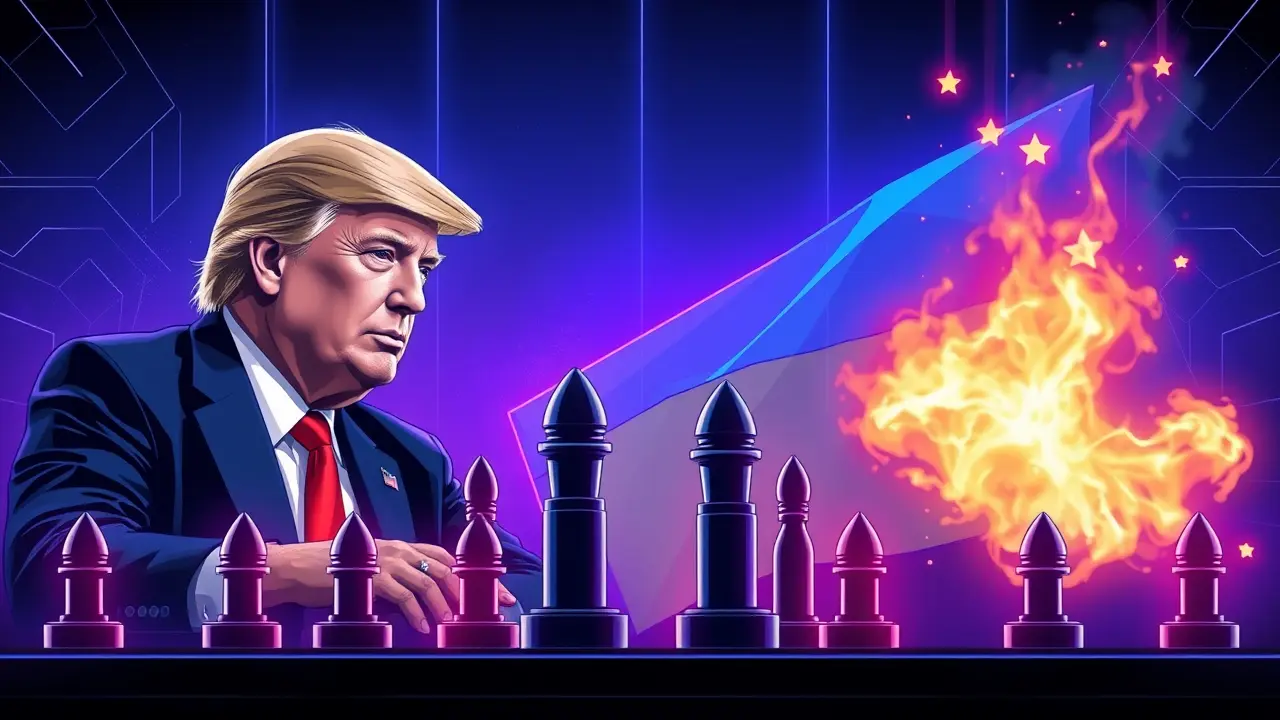Zelensky Seeks US Missiles Amid Trump-Putin Talks
The geopolitical chessboard rattled this week as Ukrainian President Volodymyr Zelensky prepared for a critical Washington summit with Donald Trump, a meeting strategically scheduled just one day after the US president unilaterally agreed to face-to-face talks with Russian counterpart Vladimir Putin—a diplomatic one-two punch that sends shockwaves through global security corridors and fundamentally recalibrates the risk calculus for every nation watching from the sidelines. This isn't merely a scheduling quirk; it's a high-stakes gambit that places Ukraine's very sovereignty in the crosshairs of a burgeoning great-power dialogue, raising the alarming specter of its future being negotiated over its head by the two men whose decisions could either cement or collapse the post-Cold War order.Zelensky’s urgent mission, according to intelligence and diplomatic sources speaking on condition of anonymity, is to formally request the immediate transfer of longer-range US-made ATACMS missile systems, a weaponry upgrade that would grant Kyiv the capability to strike deep behind Russian lines, sever critical supply routes in occupied Crimea, and fundamentally alter the tactical dynamics on the eastern front. Yet this request lands in a Washington transformed; the Trump administration, from the Pentagon to the State Department, is now populated with officials who have publicly questioned the scale of aid to Ukraine, with some influential voices even privately floating the notion of a negotiated settlement that could force territorial concessions, a scenario that was unthinkable just eighteen months ago.The timing of the Trump-Putin announcement, made without prior consultation with NATO allies, is a classic power-play, signaling a US president eager to operate outside the traditional confines of alliance diplomacy and pursue a direct, personal rapport with the Kremlin strongman, a relationship that has long fascinated and terrified policy analysts in equal measure. Historical parallels are hard to ignore; one is reminded of the 1945 Yalta Conference, where Roosevelt, Churchill, and Stalin redrew the map of Europe, deciding the fates of millions without their consent—a precedent that haunts the halls of Kyiv's government quarter today.The potential consequences are staggering: a green light for the missiles could embolden Ukraine to launch a decisive counter-offensive, potentially forcing Russia to the negotiating table from a position of weakness, but it also carries the escalatory risk of provoking a direct, conventional military response from Moscow, something the Pentagon’s war games have consistently shown could spiral rapidly. Conversely, a denial or even a delay of the request, possibly as a concession ahead of the Putin talks, would be interpreted as a catastrophic loss of US backing, crippling Ukrainian morale and potentially leading to the collapse of key defensive lines in Donbas.Expert commentary is sharply divided; Dr. Alina Kovalenko, a senior fellow at the Center for European Policy Analysis, argues that 'withholding these systems now is tantamount to surrendering the initiative to Russia, telling Putin he can wait out Western resolve,' while former ambassador Richard Haas counters that 'we are edging perilously close to a proxy war with a nuclear power, and de-escalation through diplomacy, however imperfect, must be given a chance.' Beyond the immediate military calculus, this sequence of events exposes the deep fragility of the Western alliance, with European capitals now nervously calculating their own security postures in a world where American commitments appear increasingly transactional and unpredictable. The broader context is a world increasingly defined by multipolar competition, where authoritarian states are testing the limits of a liberal international order that suddenly seems frail, and the outcome of these back-to-back summits will likely determine whether that order holds or fractures for a generation. For Ukraine, a nation that has fought for years with immense courage and sacrifice, the coming days represent the most dangerous inflection point since the initial invasion, a moment where the weapons it receives, and the words spoken in closed rooms thousands of miles away, will dictate its destiny.
It’s quiet here...Start the conversation by leaving the first comment.
